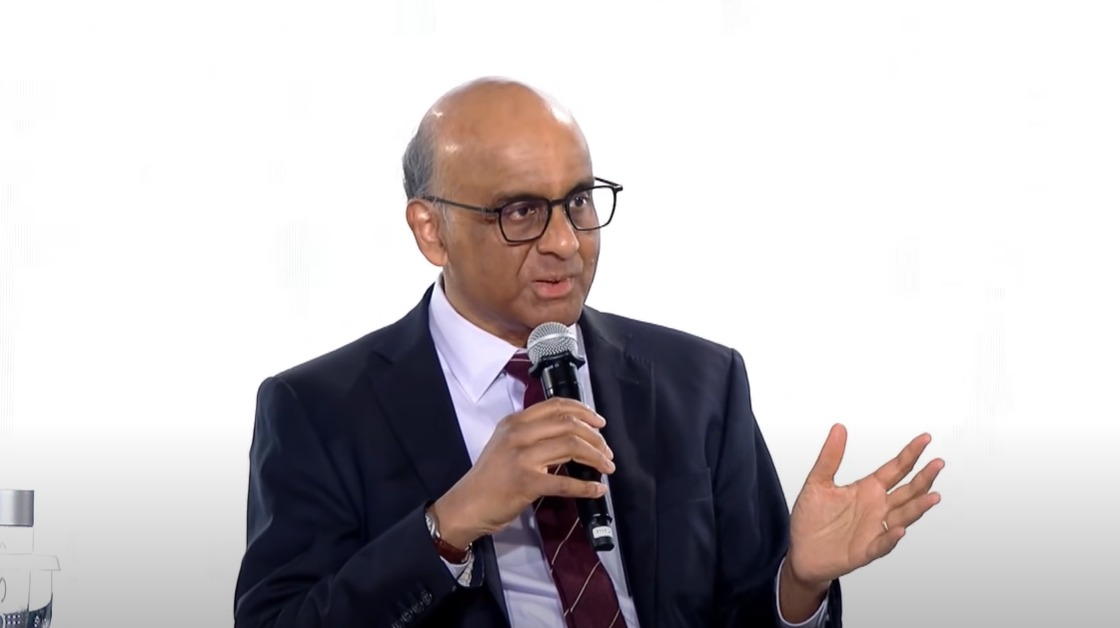Singapore President Tharman Shanmugaratnam has strongly praised India’s Aspirational Districts Programme, describing it as a leading example of empowering people in developing regions. Speaking at the Philanthropy Asia Summit (PAS) 2025, held in Singapore and themed ‘Priming Asia for Good’, Shanmugaratnam drew attention to how the initiative has successfully given power and agency to communities in some of India’s most underdeveloped areas.
Addressing a gathering of global thought leaders and philanthropists, Shanmugaratnam said, “But innovation also involves organisation. For instance, if you look at India, one of the unsung successes is what they call the Aspirational Districts Programme. A well-chosen name for the most underdeveloped districts in India.” He highlighted that Prime Minister Narendra Modi launched the initiative in 2018 with the aim to quickly and effectively transform 112 of the country’s most under-developed districts.
Shanmugaratnam explained that the programme is not just about top-down development but about “giving ownership to the community.” He noted the creation of community health workers, para-nurses, and robust data systems, all supported by the central government, with a special focus on improving maternal and child health in the earliest years. He added, “I believe Gates Foundation joined Piramal Foundation and Tata Trusts in helping to fund it.”
The Singapore President shared his personal observations, mentioning visits to some of these districts. He said he saw how the programme works on the ground because it gives “ownership and agency to the people in the village themselves.” This, he said, is key to the success of the initiative.
Shriti Pandey, a Delhi-based expert who attended the summit and has closely studied the programme, agreed with Shanmugaratnam’s assessment. She said the programme has empowered women in villages, with many involved in running clinics and Anganwadis. Pandey noted improvements in baseline health parameters under the scheme, especially around maternal and child health. She also pointed out that many foundations and Corporate Social Responsibility (CSR) initiatives are adopting the scheme as a structure to fund projects, though she emphasised that more work is needed in areas like waste management, schools, and education infrastructure.
Shanmugaratnam’s remarks came as Singapore’s Temasek Trust, along with partners such as the Philanthropy Asia Alliance and Centre for Impact Investing and Practices, announced new global initiatives at the summit to support solutions in climate, health, and their intersection, inspired in part by successful models like India’s Aspirational Districts Programme.
What is the Aspirational Districts Programme?
Launched in January 2018 by Prime Minister Narendra Modi, the Aspirational Districts Programme (ADP) aims to rapidly transform 112 of India’s most under-developed districts. The main objective is to improve the Human Development Index (HDI) and reduce disparities between regions by focusing on key areas where progress has been slow.
The programme is built on three pillars: convergence of central and state government schemes, collaboration among various government officers and district collectors, and healthy competition among districts based on their progress. Progress is measured through monthly delta rankings, which track improvements across 49 Key Performance Indicators (KPIs) under five broad themes: Health & Nutrition, Education, Agriculture & Water Resources, Financial Inclusion & Skill Development, and Infrastructure.
A unique feature of the ADP is its emphasis on community ownership and participation. The initiative seeks to empower local communities by developing health workers, para-nurses, and local data systems, all while ensuring support from the central government. The focus is especially strong on maternal and child health, but the programme also addresses broader issues such as education, agriculture, and infrastructure.
The ADP is anchored by NITI Aayog, with active involvement from central ministries and state governments. The districts are encouraged to “catch up” with the best-performing districts in their respective states and then aspire to become among the best in the country. This approach is meant to foster both competitive and cooperative federalism, driving a mass movement for inclusive growth and improved living standards for all citizens.
The programme has received support from international and Indian philanthropic organisations, including the Gates Foundation, Piramal Foundation, and Tata Trusts, making it a collaborative effort between government and civil society.
The recognition of India’s Aspirational Districts Programme at the Philanthropy Asia Summit 2025 by Singapore President Tharman Shanmugaratnam underscores its reputation as a model for community-driven development and grassroots empowerment in the developing world.


